2024 was a year marked by general economic prosperity, population growth, and a return to a vibrant tourism industry in the stayover sector at least. Conversely, in 2025, inflation continues to impact the cost of living, while over-development threatens the natural environment and strains the Islands’ infrastructure. At the same time, shifting employment dynamics risk leaving Caymanians behind.
On This Page
Quarterly Financial Report Q1 2025
There was better than expected news for Government in the quarterly financial report, the first of 2025, the results of which call into doubt the pre-election report released just before voters went to the polls. The better-than-expected results trend towards a surplus at the end of 2025, as opposed to a $26m deficit as originally forecast, and has Government opposition members who were part of the previous coalition UPM administration implying foul.
The key takeaways from the new Q1 2025 report are:
Revenue
-
Total core government revenues rose by $41.7 million compared to Q1 2024.
-
Coercive revenues were $60.6 million above the original budget.
-
Stamp duty collections were $7.7 million higher than expected, driven by:
-
Increased property transactions.
-
Higher property values.
-
Expenditure
-
Overall, government expenses exceeded the original budget by $31.3 million, due to:
-
$4.6 million in excess spending by statutory authorities and government companies.
-
$11.4 million more in outputs for non-government suppliers.
-
$19.5 million above budget in transfer payments.
-
Cost Reductions
-
Personnel costs were $5.9 million below budget, due to:
-
Vacant posts across ministries, portfolios, and offices.
-
-
Supplies and consumables costs were $8.7 million lower than expected.
Unaudited State of Government Finances at the end of 2024
According to the statutory Pre Election Economic and Financial Update (which has to be released a minimum of 28 Days before a general election,) the outgoing CI Government has created a financial headache for the incoming administration by turning the princely sum of a budgeted CI$55 million surplus into a frog-like CI$26.2 million deficit, forecast to occur by the end of 2025. This represents a negative shift of CI$80.9 million.
There is also about a CI$50 million shortfall in the public’s account.
As such, there may well have been a breach of the Framework for Fiscal Responsibility which any CI Government is beholden to, with enforcement, limitations on future borrowing and reprimands coming from the direction of the FCO in the the UK.
Worse still, the 2026 Forecast calls for an operating deficit at around the CI$44 million mark.
In short, any future Government better have good financial planning.
The cause has been laid at the door of delay in implementing revenue-generating legislation (causing a CI$15.3 million projected shortfall) and an increase in spending due to a Cost of Living allowance to civil servants. With increased benefits for elderly, veterans, and vulnerable groups and rising local and overseas healthcare costs, there was an additional CI$32 million in supplementary spending this year, leading to a total of $86.6 million additional expense.
The full Pre-Election Economic and Financial Update can be found here.
State of Government Finances September 2024
As of the 30th September 2024, the Cayman Islands Government was carrying a surplus of $148.6 million for the public sector and $135.7 million for core government, but this was expected to shrink to $16.5 million by year-end.
Government revenue exceeded forecasts by $52 million, but higher spending will reduce the surplus by over $119 million by the start of 2025.
The causes for the current status are as follows:
- Operating revenue: $1.098 billion (budgeted: $1.095 billion)
- Expenses: $1.081 billion (budgeted: $1.050 billion, exceeding by $31 million)
- Revenue increased by $67.8 million compared to 2023
- Expenses increased by $43.3 million compared to 2023
Increased Revenue Sources:
- Financial services sector: $112.6 million from corporate fees
- Partnership and Private Fund fees collected exceeded forecasts
- Real estate transactions: $17.9 million more than expected
- 2024 stamp duties revenue: $68.5 million (up $10.8 million from 2023)
Contrasting Rising Expenditures:
- $9.5 million in anticipated revenue lost due to a deferred tax fee
- ‘Other Import Duty’ collected fell by $16 million (but remained in line with 2023 figures)
- Government Personnel costs: $341 million (up $17.4 million from 2023)
- Health Services Authority (HSA) costs exceeded budget by $16.6 million
- $14.3 million for indigent care (welfare)
- Overseas medical care spending: $38.5 million by September (budgeted $24.5 million)
- Welfare and scholarships: Financial assistance exceeded budget by $7.7 million. Scholarships exceeded expectations by over $4 million. Total aid spending $11.1 million higher than last year
Draft National Development Plan 2024-2025
The Planning Statement serves as a comprehensive guide for development within the Cayman Islands, adhering to the Development and Planning Act (2021 Revision). This document establishes a long-range plan to govern physical development and overall land use across the Islands.
The Development and Planning Law of 1971 established the Central Planning Authority (CPA) to create and implement development plans, leading to the first National Development Plan in 1977. Recognising the need for an update, a Development Plan Review Committee was formed in 1991, and after public consultations and tribunal hearings, the 1997 Development Plan was approved by the Legislative Assembly, now known as Parliament. Notably though, the 1997 iteration only included appendices offering development control guidelines for the Sister Islands. Consequently, a dedicated plan for Cayman Brac and Little Cayman has yet to be established. The new plan will therefore include guidance for all three Islands.
While there have been previous attempts at modernisation, the 1997 Plan still remains the guiding document for physical development on Grand Cayman. However, with a population considerably more than double that of 28 years ago and infrastructure showing signs of buckling under the weight, the current Government's assumed objective is now to reign in overdevelopment and "achieve the best balance of economic, social, and environmental outcomes, while protecting the culture, health, and general welfare of the people". Many would agree that this is long overdue.
Therefore, in May of 2024, the CI Government released a draft document for public feedback that could serve as the foundation for the first new national development plan in 28 years. Over the next few months there will be a series of public forums across the Islands to discuss the virtues and limitations of the plan. The Development Control Board (DCB) is actively collaborating with the CPA in the preparation of this plan, known as 'Plan Cayman'.
The policy can be viewed online here at www.plancayman.ky.
Unfortunately, with general election season 2025 well underway, the status of the plan is currently in flux.
Financial Sector Overview
The Cayman Islands has successfully been removed from the Financial Action Task Force's (FATF) money laundering 'grey list' after over two years of dedicated efforts. This achievement, announced on October 27th 2023, follows a meeting of the FATF Plenary in Paris. The 'grey list' designates nations actively addressing deficiencies in anti-money laundering, terrorist financing, and proliferation financing measures. To meet global standards, the Cayman Islands established a new police unit, enacted legislative changes, and implemented new standards for realtors and precious metal dealers. This removal is significant for the islands' financial services industry and affirms their commitment to combating financial crimes and ultimately should pave the way for further foreign investment. Whether there'll be a knock on effect that benefits the Islands' local economy remains to be seen, though this certainly bodes well for the future growth of the finance sector in the Islands. As of December 2023, the jurisdiction is now undergoing removal from additional entities' listings associated with AML/CFT/CPF policies. The Government has already received notification of the Cayman Islands' removal from the UK's anti-money laundering high-risk list on December 5th 2023, and the EU Commission's issuance of a delegated regulation, specifically addressing the delisting of the Cayman Islands from its AML black-list.
Below is a retrospective look at the diverse facets of the Cayman Islands economic landscape including finance, population, workforce and salaries, based on information provided by the Economics and Statistics Office. We also look at what lies ahead for the education sector, climate sustainability, tourism, real estate, healthcare, transport and more.

The Cayman Islands' population is growing at an accelerated rate
Population & Permits
According to the spring 2024 Labour Force Survey carried out by the Economics and Statistics Office (ESO), the results of which became available in September 2024, the population and permits stats at a glance for the Cayman Islands are as follows.
- Estimated population of the Cayman Islands as of June 2024: 87,866. This is an over 5% increase from 2023 (around 3,000 more people since December 2023)
- Caymanian population rose by 2.5% to 39,897
- Permanent residents increased to 7,822 from 6,433 (spring 2023). Which translates to just under 9% of the population
- Non-Caymanian population is more than 40,000 (4.8% increase from 2023). The growth in this area of the population is driven by migrant workers, not birth rate
- 53% of the workforce (33,573 people) are expatriates
- Divided by sex, the population is made up of Men: 44,936 (6.3% increase since last spring) and Women: 42,930 (3.7% increase since last spring)
- Children under 15: 14.6%
- People over 65: 8.1%
- Dependent population (under 15 and over 65): 22.7%
- Non-Caymanians make up over 55% of the total population. Caymanians make up the remainder.
It is important to note that population growth is not inherently negative. It can lead to economic growth and increased diversity. However, some Caymanians are concerned, quite rightly, that the rapid population growth is diluting Caymanian culture and identity as well as straining resources and infrastructure beyond their limits.
That being said, the Government faces pressure from the private sector to continue to allow high levels of immigration in order to maintain the Islands' competitive advantage in the global economy, in addition to the considerable fees that the Government collects on permits and other similar applications. Any future government formed in 2025 after the general election has concluded in April, will need to balance the needs of the economy with the concerns of Caymanians and permanent residents, about the impact of population growth on their quality of life.
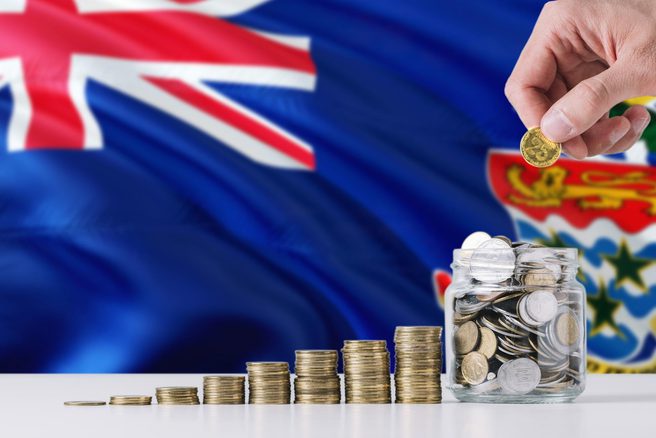
The CI Government may still have an operating surplus (just), but the cost of living crisis continues to loom large
Current State of the Local Economy
The local economy's current state, and how consumers are being affected is indicated in the Consumer Price Index (CPI) report for 2024. There have been considerable increases in housing, utility and food costs since last year. (Figures from ESO). The full report is available here. The CI Consumer Price Index Report
The Consumer Price Index (CPI) for the fourth quarter of 2024 was 136.3 higher by net 2.9 percent in comparison to the corresponding quarter of 2023.
- Food & Non-Alcoholic Beverages: up 3.5%
- Alcoholic Beverages and Tobacco: up 0.4%
- Clothing and Footwear: up 1.4%
- Health: up 4.3%
- Transport: up 5.8 %
- Communication: up 12.3%
- Recreation and Culture: up 2.0%
- Education: up 14.3%
- Restaurants and Hotels: up 5.7%
- Miscellaneous Goods and Services: up 2.2%
- Housing and Utilities: down 0.1%
- Furnishings, Household Equipment, and Routine Household Maintenance: down 1.1%
Salaries, Pay and the Workforce
According to the latest data from the Economics and Statistics Office, the Q1 2024 Labour Force Survey Report reveals insights into employment in the Cayman Islands.
The overall unemployment rate in March 2024 was 2.8%, with the unemployment rate for Caymanians rising slightly to 4.9% compared to 2022. This equates to over 1,100 unemployed Caymanians. The workforce has grown to over 62,743 individuals, including about 23,323 Caymanians. 6% of the workforce is under 24 years old, of which only about half are actually working. The latter being a concerning statistic that speaks to this segment being either underqualified, unwilling or unable to find suitable employment.
Among employed Caymanians, nearly 20% are professionals, over 11% are technicians and associate professionals, and 12.7% are managers. Expatriate workers predominantly fill roles in service, sales, and craft-related trades, accounting for over 40% in these areas, with only 17% in professional roles. This should come as good news to pro-Caymanian activists, as it demonstrates that expatriates do tend to fill the jobs in the market that Caymanians prefer not to do.
Unfortunately, more than 20,700 workers earn less than $2,400 each month and about half of the workforce earns less than CI$3,600. Given the cost-of-living in Cayman, it is remarkable that many of this demographic of expats can afford to live here at all, but somehow they manage.
Financial Outlook for the Government 2025
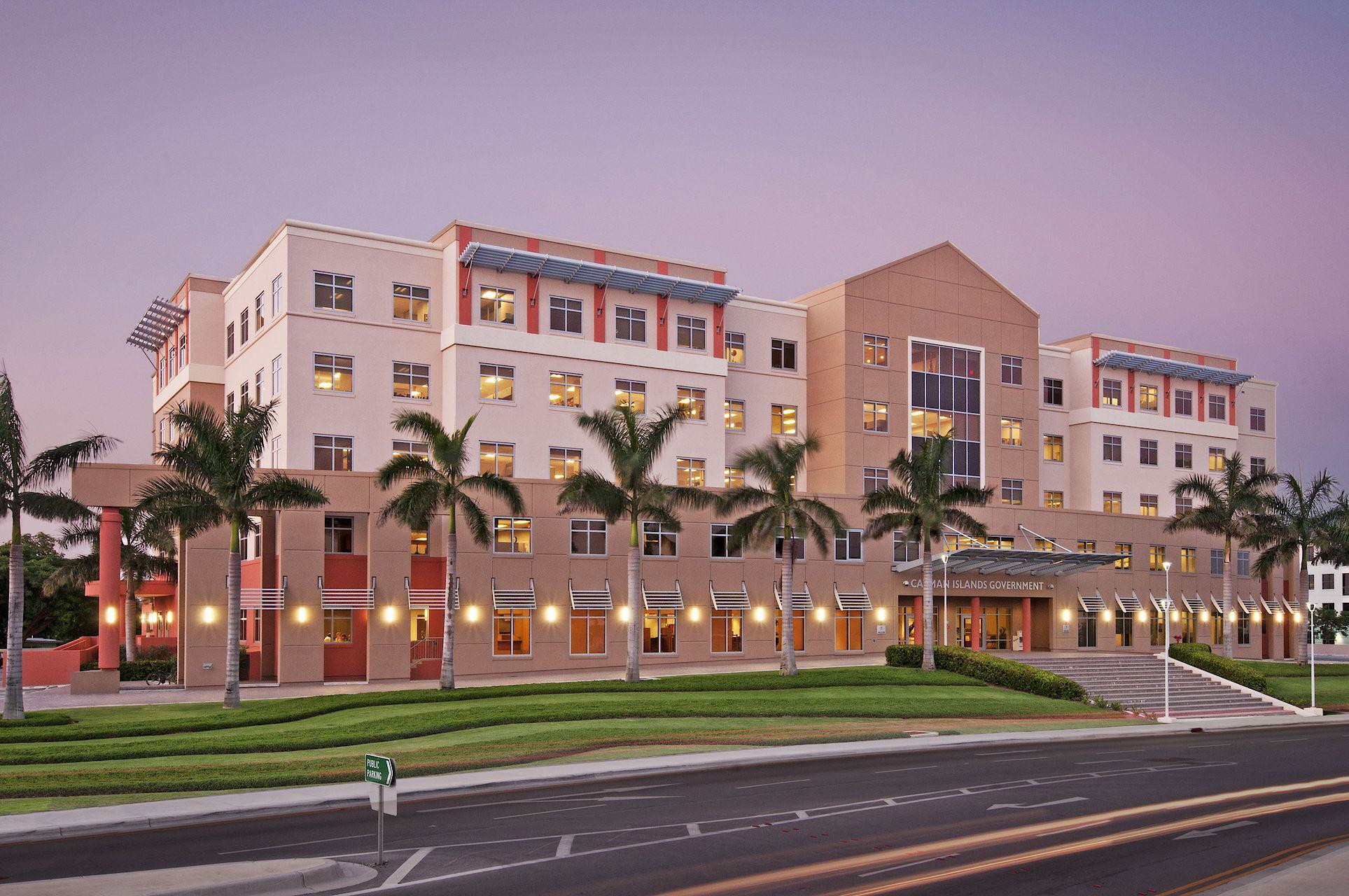
The Government has reported a reasonably solid financial performance so far (Q3) in 2024.
Summary
Net Assets of the Government were $2.3 billion, with overall bank account balances of $485.0 million in cash and deposits. This was primarily due to higher than expected revenues and investment returns, a total positive variance of $22.6 million, and by lower levels of expenditure in personnel costs, a positive variance of $34.4 million, and supplies and consumables, a positive variance of $11.5 million. As a caveat, current savings in expenses may not translate into full year savings due to timing differences.
Compared to the same period in 2023, the total revenues of core government have increased by $67.8 million. Additionally, the total expenses have risen by $43.3 million.
Overall net surplus for the entire public sector increased by $32 million when compared to the results through Q3 of 2023.
The operating cash and deposits were $287.9 million and reserves were $197.1 million, for that total balance of $485.0 million in the bank. (All amounts in CI dollars.)
A full unaudited report on the CI Government's finances for Q3 2024 can be found here.
Education
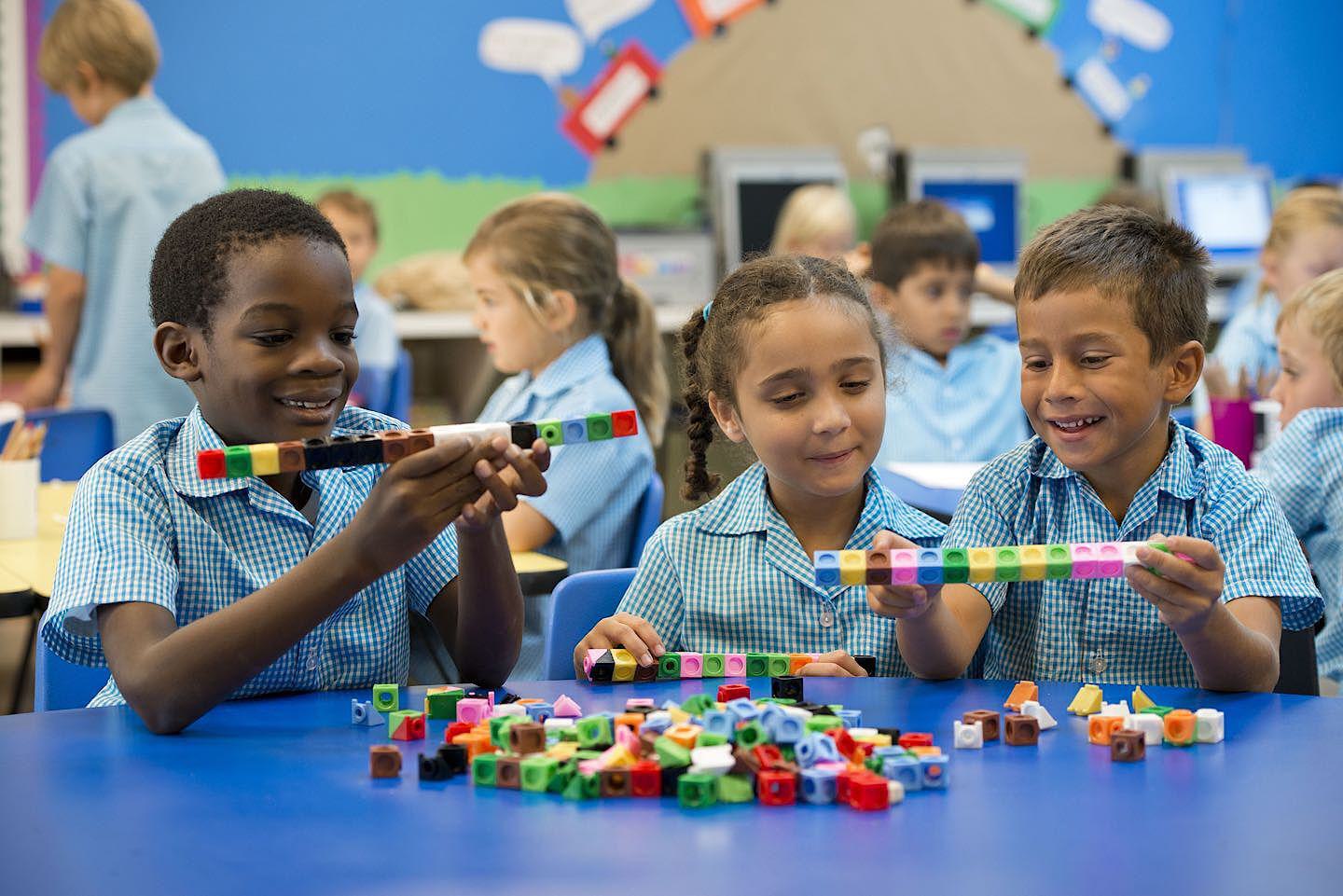
In the context of the Cayman Islands' educational landscape, in the academic year running from 2022-23, 4,515 children were enrolled in primary education and 4,527 in secondary education, with approximately 770 teachers serving in these institutions. There were slightly more students enrolled in government schools, as opposed to private ones. The government of the Cayman Islands allocated a budget of roughly $110 million for education during that year. High school graduation rates in the Cayman Islands stood at approximately 85%. Figures are not yet available for the 2023-2024 academic year.
As part of the government's Strategic Policy for 2024-2026, there was a focus on equipping students for a digital future and fostering future leaders through nation-building activities. Key initiatives in this policy included strengthening early education programmes, reintroducing 'A levels' education in public high schools, and offering free tertiary education at local universities, all aimed at improving the education landscape, and preparing students for the evolving demands of the modern world. However, introducing A Levels has not materialised yet, and it is only East End Primary that has now got a class for 3 to 4 year olds.
Broadly speaking, there were several ongoing projects in the Education sector, at various stages of execution, it is not known if all of these projects will come to fruition.
- The John Gray High School reconstruction including expansion of the Cayman Islands Further Education Centre campus and the construction of new sports fields
- Plans for a new high school in Cayman Brac and West Bay
- Increased capacity of Clifton Hunter High School with a fourth academy
- Lighthouse School expansion to provide both education and therapy for children with special needs
- Edna Moyle Primary School project aims to construct a new facility in North Side to better accommodate its educational needs
- Sunrise facility project seeks to establish a new facility offering improved services specifically designed for adults with disabilities
However, with a general election taking place in April of 2025, it is likely there will be some changes to the proposed public educational landscape, when a new government is formed.
In the private sector, CF School is a new private high school that is expected to open in September 2025. It will be located in Buttonwood Park, George Town. CF School will offer a curriculum that is tailored to the needs of each individual student. The school will also offer a variety of extracurricular activities, including sports, arts, and music, and their school day will run until 5.30pm.
The first stage of a new Montessori preschool, located on Captain Reginald Parsons Drive is open and operational. The $1.1 million project will be built in two stages, with the first stage featuring four classrooms, a drop-off lane, and a petting area, while the second stage will add four more classrooms, a playground, and a sports field. The preschool caters to children aged 18 months to 6 years, employing the Montessori method for hands-on learning at their own pace, with a focus on environmental education and sustainability.
Climate Sustainability, Green Goals & Beach Erosion
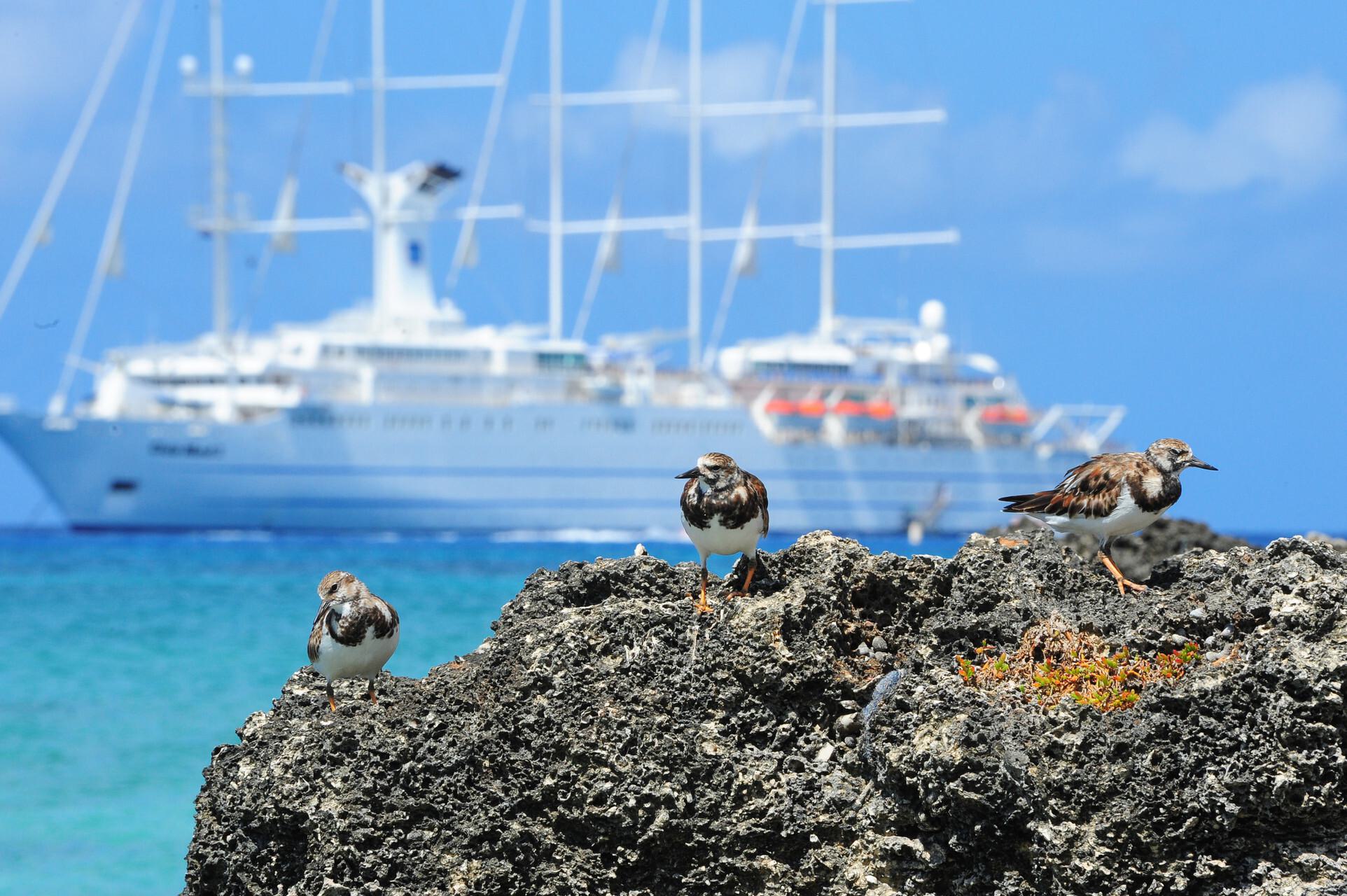
The Cayman Islands Government has established ambitious national energy goals, aiming for 70% renewable energy by 2037, a 30% improvement in energy efficiency by 2030, and transitioning to 100% sales of electric vehicles by 2037. To realize these targets, the government is actively engaged in several initiatives. This includes investing in renewable energy projects such as solar and wind farms, promoting energy efficiency through public awareness campaigns and incentive programmes, and facilitating the shift to electric vehicles by offering incentives for purchases and establishing a comprehensive charging infrastructure across the Cayman Islands. These efforts collectively reflect the government's commitment to a sustainable and energy-efficient future.
Cayman's Landfill Sites
In 2023, the waste collected from commercial and residential locations reached 79,516 tonnes, slightly down from the record high of 83,590 tonnes the previous year. At Cayman's three landfill sites, only 195 out of 131,211 tonnes of total waste were incinerated. The Department of Environmental Health also shipped out 11,300 gallons of hazardous waste in 2022, whilst none was shipped out in 2023. Given these numbers, it becomes clear why ReGen, the project which is integral to the waste-to-energy plant and recycling infrastructure essential for establishing a eco-friendly solid waste management system in the Cayman Islands, must happen. Unfortunately in July of 2024, negotiations on the construction and management of the project broke down permanently, and currently, ReGen seems dead in the water.
More positively, in Cayman Brac, a new, replacement commercial waste incinerator became operable in June 2024, 4 years after the previous one reached the end of its operational life. According to Government, the 'state-of-the-art' incinerator is designed to safely dispose of hazardous and biohazardous waste, whilst minimising emissions. It will serve both Cayman Brac and Little Cayman.
There is some more good news too, in Grand Cayman this time. Glass recycling has returned after a two year hiatus, thanks to a new partnership between the Department of Environmental Health and the Flowers Group. As of March 2024, used glass (residential refuse only) can be dropped off at any of the nine recycling points across the Island. For more information, click here.
Beach Erosion
The problem of erosion along Seven Mile Beach is nothing new and each storm serves to further erode the beaches around properties built too close to the sea. In 2022, the Cayman Islands Government embarked on, but never went through with, a proposed $21 million sand replenishment scheme as rising sea levels and over-development fueled beach erosion.
At the Grand Cayman Marriott Resort, following Hurricane Ian in September 2022, the problem of the near-permanent absence of the hotel’s beach was made even worse by a new headache: flooding across the bar and restaurant areas. Significantly, the Marriott were forced to change their name, removing the word ‘beach’.
In 2024, even more beachfront property had to close or be demolished as a direct result of beach erosion and yet, no firm plan has been put in place for sand replenishment or renewal. The Dart Group, which owns multiple beachfront properties and businesses, consulted a team of scientists and experts from a Danish company to evaluate the effectiveness of the Government's beach replenishment scheme. They also put forward a more controversial "sand engines" approach, which involves pumping and dredging sand from the seabed, allowing natural winds and currents to distribute it along the shoreline. Ultimately, the latter was deemed the best solution, though it remains an untested method for the specific coastal conditions of the Cayman Islands.
Regardless, the longevity of the Island's no.1 tourist attraction is in jeopardy of being seriously curtailed, not to mention that of the properties that are built upon it. This critical issue, for both tourists and residents, has become one of many that will be at the forefront of the General Election, due to take place in the Islands in April 2025.
Tourism
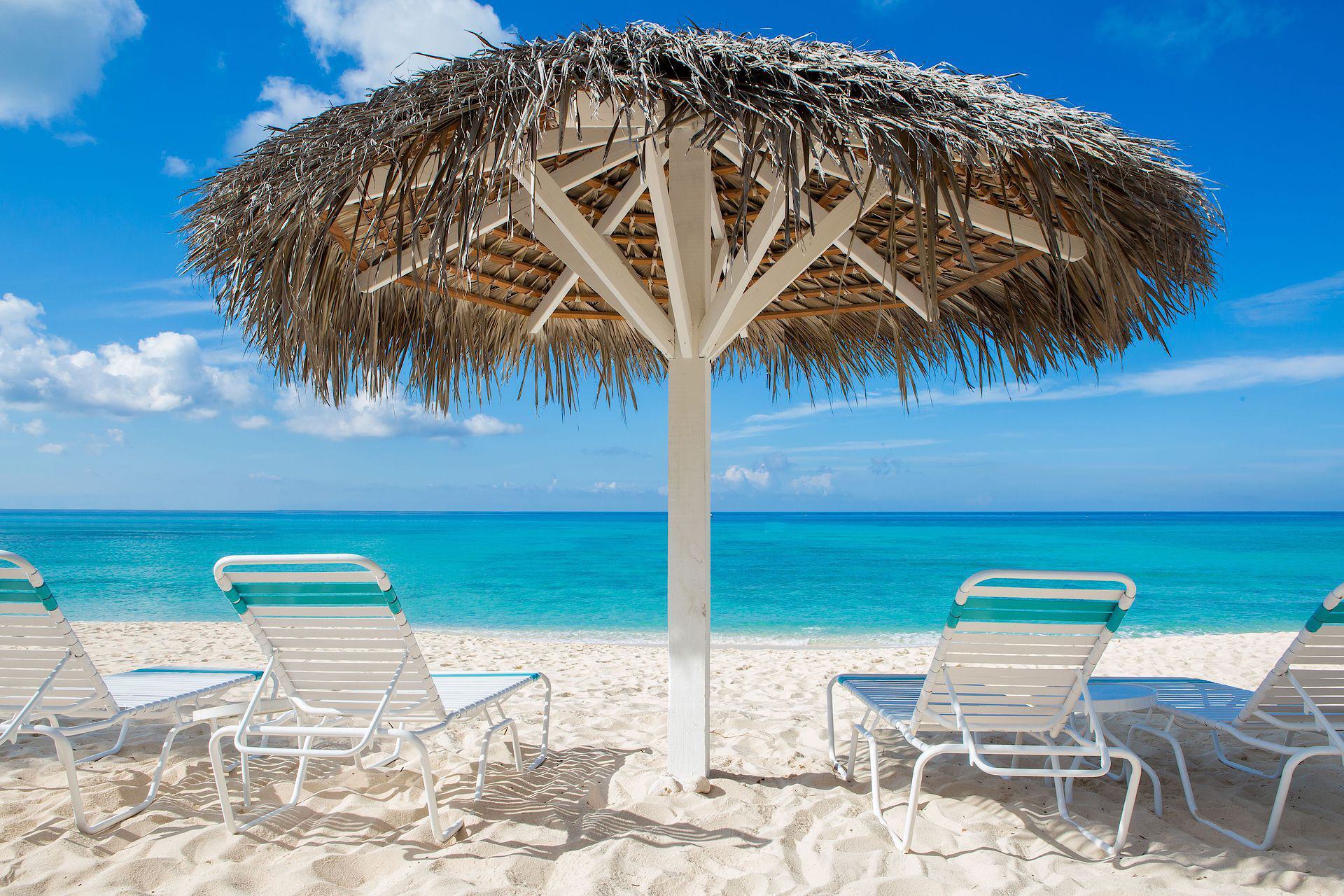
The Cayman Islands' tourism sector has recovered well. What's next for cruise ships?
Focus Pivoted to Stayover Guests in 2024.
Stayover tourism in the Cayman Islands is growing steeply post-pandemic but not quite to the ecstatic highs of 2019. With hopes that increased hotel room availability will support this trend, The Department of Tourism is now reporting over 8,111 rooms currently bookable for stayover visitors in mid 2024, a number bolstered by the recent opening of the Hotel Indigo just north of the midway point on Seven Mile Beach. Furthermore, the construction of another 600 hotel rooms in prime southern Seven Mile Beach spots is well underway. This increase will be coupled with an anticipated rise in Airbnb listings.
To service the potential increase in visitors flying in, particularly on long-haul flights, plans to enlarge and improve Owen Roberts International Airport continue apace, (although that speed is relative, when one considers 'Island-time'!) In fact, the CI Government is actively pursuing avenues to increase capacity on all three of the Islands' airports. However, not without some controversy. As of June 2024, the Government is inviting bids from private entities to carry out the Environmental Impact Assessments needed in order to proceed. It would seem, not surprisingly, that each of the planning proposals for the airports, championed by Tourism minister Kenneth Bryan MP, potentially come with the risk of upsetting the wildlife habitats and other current residents of the surrounding areas.
The most contentious of the three proposals is the relocation of the airfield on Little Cayman. The CIAA has decided to relocate the airfield to the Island's centre and this plan has been met with strong opposition from residents, who are concerned that moving the airfield will jeopardise the Island's complex wildlife ecosystem. Meanwhile at Owen Roberts International Airport, the expansion project entails extending the runway by 340 meters and adding a 240-meter safety zone into the North Sound, much to the chagrin of nearby property owners, not to mention the odd plant, bird and fish. Finally, it is feared on Cayman Brac, that the requirement to widen the runway by 75 meters will intrude upon the wetlands on its southern side.
Air arrivals rose to 330,514 for the first nine months of 2024. The largest arrivals continue to be generated by the USA market, which supplied 83.4% of the visitors. Total arrivals from the USA were 275,648 up to September 2024. The rest were made up by 6.4% from Canada, 3.2% from the U.K. and Ireland, 1.3% from Latin America and the same from continental Europe, with the rest of the world providing 4.4% of the total of stayover guests.
Aviation Stats for late-2024 at a glance:
• Nonstop service was scheduled from 8 countries and 26 gateways on 10 airlines
• US, UK and Canada accounted for 93% of the total stayover visitors
• Inbound airline seat capacity increased by 15% on 365 more flights compared to 2023.
• US, UK and Canada had 585,697 Inbound seats on 3,522 flights.
Cayman Islands Tourism Industry First 6 Months Performance (Stayover Guests) stats:
• The Cayman Islands welcomed 330,514 stay-over visitors from January to September 2024 (increase YOY of 2.3%)
• The number of visits in one month by stay-over visitors peaked in March 2024 with 57,040
• Visitors stayed an average of 6 nights
• 45% of individuals were between 36 and 60 years old, with an average age of 42.9 years
• Most common purpose of visit: Leisure, with 289,530 persons accounting for 87.6% of the total stayover visitors
• Business-related travel accounted for 5.8% of total visitation
• There were 21,813 persons visiting relatives, 6.6% of total visitation
Cayman Airways
The national carrier of the Cayman Islands is currently flying non-stop to the following international destinations:
(US)
Miami, New York, Tampa, Denver and Los Angeles
(Caribbean)
Cuba, Jamaica, Honduras, Panama
Cruise Berth Referendum on the General Election Ballot in 2025
At the same time, cruise ship passenger numbers have yet to recover to pre-pandemic highs, although other factors are at play in the cruise ship industry over and above the visitor product that Grand Cayman offers. In the first quarter of 2024, there were just over 400k cruise ship passenger arrivals, as opposed to over 635K in the same period of 2019.
Concurrently, the debate over the construction of cruise ship birthing facilities in George town continues to rumble away. With cruise ships getting larger and Cayman's ability to accommodate them, logistically-speaking, in question, some very hard choices will need to be made over the next few years as to whether the Cayman Islands should move away from cruise tourism altogether. In which case, leaders will have to carefully construct an economic alternative for generations of Caymanian business owners and their expat employees, who have depended on the cruise sector for decades.
It was announced by the Government in late 2024 that a non-binding public referendum would be held on the matter as part of the Islands' General Election 2025. The question will be, "Should the Cayman Islands develop cruise berthing infrastructure?"
Even with a definitive answer from the public, finding a solution to the cruise berthing problem in Cayman will be an extremely divisive showdown of Environment vs. Economy, and will need to be deftly handled by any future government.
Cruise ship stats for 2024 at a glance:
• Cruise passenger arrivals for January to September 2024 were 792,880 down 15.4% compared to the same period in 2023
• There were 245 cruise ship calls, down by 52 calls compared to the same period in 2023
Have a look at the image below for cruise ship passenger arrival information for the first nine months of 2024.

Snapshot: Cayman's 2024 tourism performance (Jan 2024-Sep 2024). Click image to enlarge or for a full screen pdf version of this infographic click here.
Other Industries
Healthcare
In 2025, Cayman can justifiably boast a world-class healthcare service, particularly when one considers its size and population. According to the latest figures from the Economics and Statistics Office, we are fortunate to have over 2,000 registered healthcare professionals in public and private employment across the Islands, working in facilities that include hospitals, pharmacies, laboratories, physician practices and therapy clinics.
Throughout 2024, HSA (Health Services Authority) have introduced a number of new services and enhanced existing ones, including neurology, the adolescent mental health hub (Alex’s Place) and a geriatric clinic. In addition, they have increased the capacity of their accident and emergency facilities to improve the level of care for patients, bolstered their orthopaedics department by hiring a consultant orthopaedic and spine surgeon, and increased the number of speech and language therapists on staff. Coupled with infrastructure and logistic upgrades, the HSA aims to consolidate its reputation as a leading health services provider on the Islands.
Health City Cayman Islands, which established a 110-bed hospital in East End in 2014, has now constructed a new US$100+ million super-specialty hospital in Camana Bay. The new facility features a dedicated cancer care centre, maternity and neonatal intensive care unit, emergency pavilion, critical care unit and emergency, multi-specialty programme, including an expansion on robotic-assisted surgery, which was introduced to the Island by Health City for the first time last year. The new 70,000sq ft hospital and level 1 trauma centre was inaugurated in July of 2024. These new facilities cement Grand Cayman as a medical tourism destination in the Caribbean, being the first in the region to offer bone marrow transplantation, CAR-T cell therapy and a one-of-a-kind neonatal intensive care unit.
Nearby, Dart has also submitted plans to establish a new centre of health and wellness near the Health City Cayman Islands medical campus. The purpose-built three-story structure, scheduled to open in 2026, aims to create a convenient environment for health and wellness services by bringing various experts under one roof. The goal is to meet local healthcare needs, aiming to enhance accessibility for residents and tourists. The Centre, positioned near George Town and Seven Mile Beach, will include amenities like a cafe and wellness offerings, forming a healthcare hub alongside the new Health City facility.
Click here for information, news and listings from the Healthcare industry in Cayman
Real Estate
In terms of the number of transactions, Cayman's property market was certainly cooler in 2024 than in 2023. However, the average value of those properties increased. This means that mortgaged-property owners who are able to manage the high interest rates that affected their monthly repayments have seen an increase on their investments. Whilst inflation has dropped to less than 2% in the first quarter of 2024, interest rates remained high at 8%. This has disproportionately curbed new borrowing. Also, in some cases, home insurance costs have increased as much as 40%. All of this has hindered the local housing market.
According to the Cayman Islands Real Estate Brokers Association (CIREBA), there were 425 sales in the first six months of 2024 totalling CI$143,419,653 compared to 791 properties sold in the first six months of 2023 totalling CI$379,387,665, with 242 of these sales in 2024 being condo sales and 61 being single-family home sales. As of June 2024, the total value of 1,859 active listings was over CI$935 million, while at the same point in 2023, 1,600 listings were listed at CI$3.355 billion.
Click here for more on Cayman's Real Estate Market
Click here for more on Stamp Duty Concessions for Caymanian Buyers
Transport
Cayman’s key routes have seen many changes recently, and the sight of labourers sweltering in the midday sun as drivers navigate seemingly endless traffic cones is common, and a valiant attempt to alleviate the Island’s peak-hour traffic congestion. With the National Roads Authority (NRA) estimating 100,000 road users by 2036 and currently very few public or mass transport options available, the future looks like a very busy one for Cayman's roads.
As of August 2024, there are several NRA projects ongoing. The realignment and widening of Crewe Road (westbound and eastbound from Grand Harbour) commenced in June of 2024, and is probably the most talked about. This is the next stage of a multi-phase development that involves increasing lane capacity on the primary Grand Harbour arterials and their intersections. The area has long been considered a bottleneck, and the main cause of rush hour traffic for commuters coming from the eastern districts. But with 28,000 vehicles expected to be passing through the area by 2036 (which is a 57% increase on the current amount), the challenge is huge.
For more on major road improvement projects click here on our Traffic in Grand Cayman page
Public Bus System
In April 2023, Deloitte released a comprehensive report evaluating the Cayman Islands' public bus system, noting its current state as "fragmented, inefficient, and unsustainable," and failing to meet the community's needs. The report, commissioned by the Ministry of Tourism and Transport, proposes several key recommendations. These include replacing the private bus service with a Government-operated network to enhance operational efficiency, investing in new buses and infrastructure to improve reliability and comfort, creating designated bus lanes and stops with amenities like WiFi, and ensuring accessibility for disabled individuals. The estimated cost for these improvements ranges between $25 million and $30 million, with projected benefits outweighing the expenses. The report highlights potential positive impacts like reduced traffic congestion, improved access to education and jobs, increased tourism revenue, and greater social inclusion.
Government's plans for implementing these recommendations remain unclear, as does who will actually be governing after the General Election in April 2025.
Click here for more on 2023-2024 Transport & Traffic Statistics
Other Key Infrastructure Projects
Other key development projects are underway, at least in the conception phase.
- Expansion or potential relocation of the Island's cargo port, driven by the anticipation of reaching its capacity within the next decade. The estimated cost for on-site expansion is projected to be around $73 million.
- Upgrading the submarine cable infrastructure.
- Modernisation of the Islands' prison system with the construction of a new 250-inmate capacity facility, that consolidates all inmate groups onto one premises. The slated completion date for this development is set for 2027.
Sources for this page: ESO - Consumer Price Index Report, CNS - Cayman News Service, DOT - Department of Tourism




